2012 Yeti 575 Bike
(discontinued)
| Where To Buy | |||
|---|---|---|---|
Free shipping on orders over $50 (continental U.S. only).
International shipping available. Some exclusions apply. |
Free shipping on orders over $50 (continental U.S. only).
International shipping available. Some exclusions apply. $3,949.94
|
||
Yeti Cycles | Asr T- Series Frame Turq M
$4,000.00
|
|||
Free shipping on orders over $50 (continental U.S. only).
International shipping available. Some exclusions apply. |
|||
1 member reviews
[About me: 5’10” 205 lbs. 30” inseam.]
I’ve always been a huge fan of Yeti bikes, a company with roots dating back to the genesis of the sport and an enthusiastic, if not cult-like, following. After years of ogling I finally threw down the dough for a 575. My impressions of the 575 are overwhelmingly positive. I even entertain the possibility: is this the ultimate single-pivot all-mountain bike? Read on to find out.
Why the 575? This isn’t Yeti’s most advanced 26” suspension platform. For that you would need to look at the SB-66. Still, the 575 is Yeti’s longest standing and best selling model – and the reasons become obvious as soon as you hit the trail. This bike is pure playful fun. It wants to jump, flick and charge every line and it rewards an aggressive riding style.
To start, this bike climbs way better than one should expect from a 150 mm all-mountain bike. (To be precise, the 575 has 146 mm rear travel and 150 mm front.) The frame is adequately, though not overly, stiff. As far as anti-squat goes, I don’t know how Yeti does it with what appears to be a rather simple suspension, but they have it nailed. Pedal bob is minimal with the Fox RP23 shock in ‘open’ mode and is virtually nonexistent when ‘pro pedal’ is engaged.
On steep technical climbs, my tendency is to ride the 575 with the rear shock in the ‘open’ position to benefit from the improved traction. The drawback is that this causes the rear end to ride a little lower, which combined with its short wheelbase, gives the 575 a propensity to get a little light in the front end. This only ever poses a problem on the steepest of climbs and can usually be overcome by positioning the ol’ derriere on the very tip of the saddle horn (ouch! I know).
The only situation in which I regularly utilize the ‘pro pedal’ option is on long ascents up gravel or paved roads on my way to the real goods. With ‘pro-pedal’ engaged the bike rides noticeably higher on its suspension but forfeits some needed compliance over larger bumps. In all, the 575 doesn’t climb like a purpose built XC 29er but keep in mind we are talking about an all-mountain bike with 26” wheels.
Further aiding its climbing ability is the 575’s reasonably low weight. To that end, Yeti employs a mostly carbon fiber rear triangle with carbon seat stays and non drive-side chain stay. The asymmetrical drive-side chain stay is aluminum and comes wrapped in a custom fitted chain stay protector. I am sure the carbon fiber in the rear triangle shaves some weight. But a latent benefit is its dampening effect that creates a very unique feel to the bike.
An all-mountain bike that also climbs well is a beautiful thing. But where the 575 truly shines is precisely where it ought to: on flowy trails and when gravity takes over. The short wheelbase makes negotiating technical descents and switchbacks a breeze. The suspension just seems to soak up anything you throw at it – travel feels way longer than measured. It takes some patience to get the rebound and dampening dialed but the rewards are tremendous.
A small drawback to the single-pivot suspension is that smaller bumps or washer board sections can feel a little harsh and sometimes a series of small wet roots requires a little more attention than deserved. But this tendency is easily overcome on the 575 by simply pedaling aggressively keeping the rear suspension more actively engaged.
If I had to be ruthlessly fussy and choose just one thing to tweak in the 575’s downhill performance it would be to add a beefier fork (at the cost of added weight). 32 mm stanchions can feel a little wobbly on really chunky hits. But this is really nitpicking. Perhaps, if my intended use for this bike was to race enduro I may not only choose a beefier fork but also one with a little more travel, say 160-170 mm. But I digress.
The “Race” build kit on my 575 sports mostly XT components with an XTR carbon cage rear derailleur and DT Swiss hubs and rims. Other details include Fox RP23 rear shock and Float RLC 150 fork; Thomson Elite stem and seat-post; Cane Creek headset; Easton Monkey Lite composite handlebar; and Schwalbe Fat Albert tires. Yeti doesn’t cut corners on their build kits with house brand components. The only part with a Yeti logo on it is the saddle, but it’s a WTB Silverado. The 575 can also be purchased as frame only, in a more value oriented “Enduro” build kit or a “Pro” version with full XTR.
I don’t want to spend too much space here on a detailed discussion of individual components because each one warrants its own in-depth review. But I will say that the XT group components including brakes, levers, shifters, etc. are flawless and the XTR rear derailleur is a nice little bonus.
At 5'10" with a 30" inseam I went with a size medium, though I could easily ride a large in terms of stand-over clearance. However, my theory of mountain bike fitting is that if in between sizes, always opt for the smaller one to promote improved bike handling.
The only upgrades I made to my 575 are a Thomson Elite dropper seat post and tubeless conversion. I used the stock rims and tires and Stan’s yellow tape and sealant (no rim strips).
If you are reading this review and considering the 575, it is worth noting that the model went through some minor tweaks in 2011 and a very big change is reported for 2014.
The 2011 model sports a tapered head tube, dropper post cable mounts and direct mount front derailleur. Unfortunately, gone is the carbon rear triangle in favor of heavier aluminum. But the geometry and hydro forming remains unchanged.
If the reports are accurate, 2014 holds the most exciting changes for the 575 since its inception. Yeti plans to continue the 575 as a 27.5” bike. Pre-production photos look as though Yeti essentially maintained the geometry of the 26” model save for lengthening the rear triangle and slackening the head tube angle to make room for the larger wheels. While none of the changes from 2010 to 2011 would warrant an upgrade, I must admit, a 27.5” version is compelling.
The thing that can be most difficult to quantify and relate about any bike is the intangible element of overall “feel”. When it comes to the 575 though, it’s easy. One word: Solid. This bike just oozes quality. The design and craftsmanship are superb. After much abuse from rocky, technical east coast riding my 575 is still flying high.
Mountain bike design is often a series of interrelated compromises and the 575 is not immune from that fact. The 575 is not all things rolled into one. But is it the ultimate single-pivot all-mountain bike? A great case can be made in favor of that proposition. Simply put, the bike does everything that it ought to very well. It even excels in some categories that come as a surprise for an all-mountain rig. So if you had to select a standard bearer for the all-mountain category the 575 should be near the very top of your list.
Specifications
| Where To Buy | |||
|---|---|---|---|
Free shipping on orders over $50 (continental U.S. only).
International shipping available. Some exclusions apply. |
Free shipping on orders over $50 (continental U.S. only).
International shipping available. Some exclusions apply. $3,949.94
|
||
Yeti Cycles | Asr T- Series Frame Turq M
$4,000.00
|
|||
Free shipping on orders over $50 (continental U.S. only).
International shipping available. Some exclusions apply. |
|||





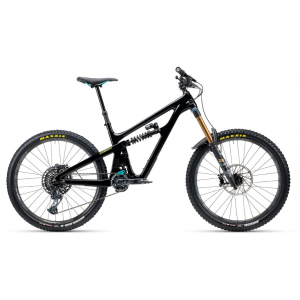
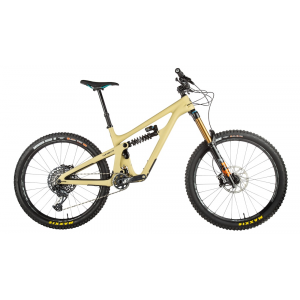
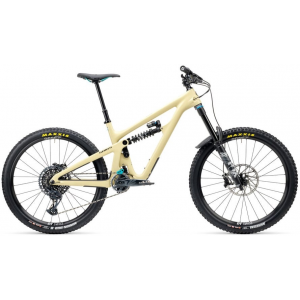
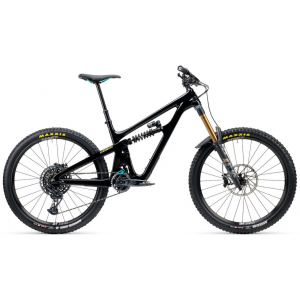
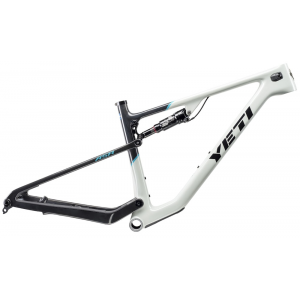
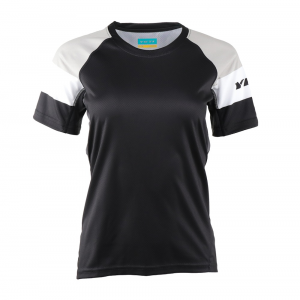
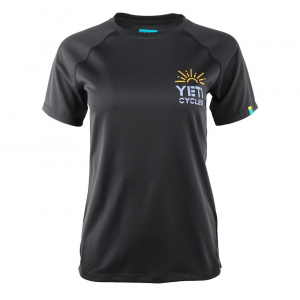
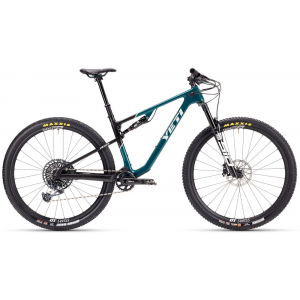
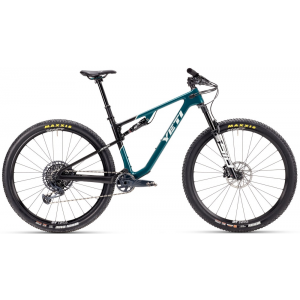
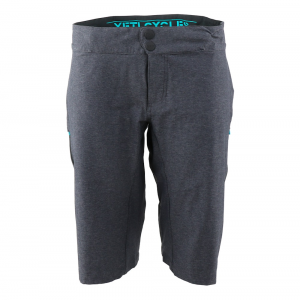

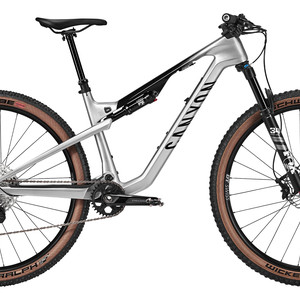

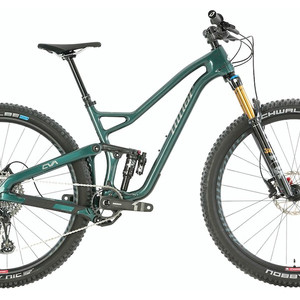
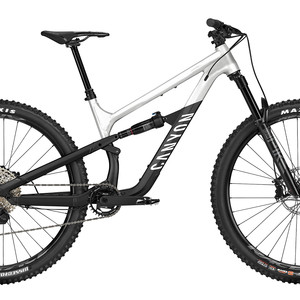
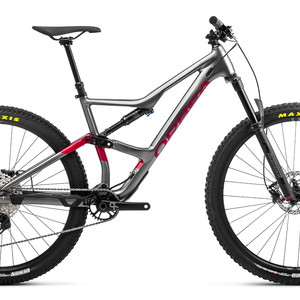
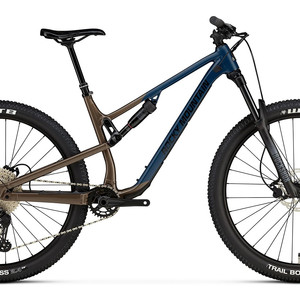
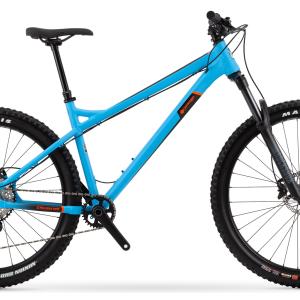











1 comments
Post a reply to: The Ultimate All-Mountain Single-Pivot?